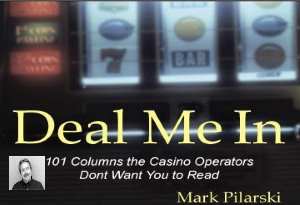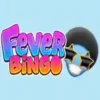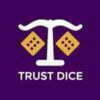What are your thoughts of a system where you bet sequential numbers on a roulette wheel since they are all grouped together? For example, 1-5, or 8-13. Therefore, when they start appearing, I bet that particular area of the layout. Stan L.
Hey Stan, you haven’t by chance had a botched Lasik surgery? I ask because if you eye the layout with halfway decent vision, you will note that the 1 doesn’t reside next to 2, nor 8 anywhere near 9.
By design, the numbers are not arranged clock-style on the standard roulette wheel. Laying an imaginary arrow across wheel center, you will see that when the pointy end is on 1, the feathery end is on 2, in a pattern that is roughly repeated all the way up through 35 being opposite 36, to 00 which waves at 0 from across the wheel.
You inspire me, Stan, to do some commentary regarding profitless roulette systems and their relationship to the house edge, or possibly a column on the independent-event nature of every wheel spin.
In seven-card stud, could you please explain what a “street” wager is and its relationship to each round of betting? Doug D.
Seven-card stud begins with players anteing up, after which the dealer deals three cards to each player. The game is now at Third Street (3 cards, 3 streets, get it? Nothing complicated about gamblingo). Next, the players increase their bets in order around the table, the dealer pops for a fourth card to each, and the game stands at Fourth Street.
This cycle of bet-and-get-card continues until all players still in the game (some may have sniffed disaster in the wind and dropped out) have seven cards apiece, and the game is now – you’ve guessed already – at Seventh Street.
I saw a pinball game in the casino. What is it? I have never seen it before. Garrett J.
Extremely popular in Japan, the pinball-like device you mentioned is called Pachinko, and can be found in some American casinos. The name “Pachinko” is derived from the Japanese word pachi-pachi, meaning the crackling of fire. While the true origins of Pachinko are unknown, odds-on it descended from the “Coringth Game” which originated in Chicago, and I do find it hard to believe that Chicago players would cotton to something so hard to pronounce.
The first Pachinko hall opened in Japan in the early 1920s. Takeichi Masamura is credited with founding today’s Pachinko, for he developed the “Masamura Gauge” – the arrangement of nails that became the basis for most of today’s Pachinko machines. I actually have an old Pachinko machine buried in my basement that is full of promise, but so far this writer has lacked the ambition to restore it.
Side note: Friend of mine saw lines of people in Tokyo on lunch break, waiting to get to one of the several dozen Pachinko machines in open-air Pachinko parlors. Since the fall of the balls forms a perfect bell-curve foretelling the inevitable outcome, Friend couldn’t understand why anyone would play. But he did not appreciate the difference between faith-based and thought-based practices.
Gambling thought of the week: “I try to cajole good draws out of the machine in video poker, like the machine can hear me. Come on, one more Ace! One more Ace and no one gets hurt!” Frank Legato




















